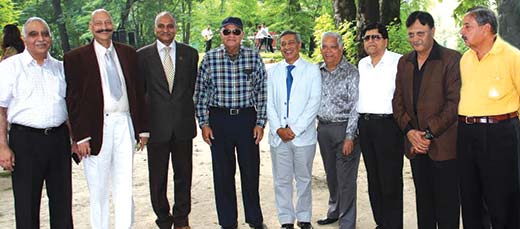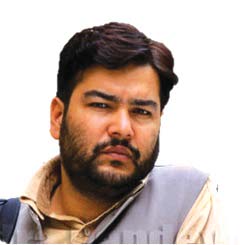Dr Raja Muzaffar Bhat
Few years back a hectic debate was on over “Police Reforms” in Jammu & Kashmir. National Conference led government headed by Omar Abdullah had finally decided to introduce a Model Police bill (Police Reforms Bill) in the state legislature during the 2013 budget session of J&K legislature. The draft police bill was made public by the previous government for public feedback in February 2013. The draft bill had triggered controversy in the State which finally forced Omar Abdullah government not to introduce it in the state legislature which continued for almost one and a half months in between mid February to April 5th 2013.
After the public pressure, previous government had assured to make some changes in the bill . People of the state were hopeful that police bill might be introduced in state assembly during summer session (August –September 2013), but this didn’t happen. I personally feel it is better that J&K has not enacted a police law in haste, otherwise there would have been lot of mistrust vis-a-vis this law in the society which could have led to protests and agitations in the state particularly Kashmir valley.
Seeking Public opinion on Police Bill:
The draft Police bill was made public on 15 February 2013, and suggestions on it were sought within few weeks. Whole of Kashmir was on boil during that time aftermath of Afzal Guru’s hanging in Tihar jail. Curfew was clamped for more than a week by the authorities in Srinagar and other major towns of the valley. People felt that government apparently sought to use the situation to formally introduce the abhorrent Draft Police Bill that would have turned Jammu and Kashmir into a police state. But the government didn’t go ahead as they sensed public anger and agitations .
What was PDP’s view point ?
Peoples Democratic Party (PDP) which was the main opposition party during that time had also vehemently opposed the move of introducing the police bill. PDP president Mehbooba Mufti has said that her party would oppose passage of the Police bill 2013. In a press statement during that time PDP president had said, “The proposed Police Bill is an attempt to institutionalize the dreaded Ikhwan culture in the State, and is aimed at creation of Special Security Zones (SSZs) and legalization of Village Defence Committees (VDC’s)”.
Experts and Civil Society View:
 Commonwealth Human Rights Initiative (CHRI) which has been working on police reforms in India and many other commonwealth nations had requested J&K Government to hold consultations with public on the pattern of Kerala. Navaz Kotwal, Programme Coordinator, police reforms at CHRI had suggested that pre-legislative consultative process adopted in Kerala should be followed in Jammu and Kashmir. Pertinently Kerala police bill was first placed on website with an email address inviting feedback on the same. Later on, some of the suggestions received were incorporated into the Draft. The Bill was referred to a Select Committee when it finally reached the Assembly.
Commonwealth Human Rights Initiative (CHRI) which has been working on police reforms in India and many other commonwealth nations had requested J&K Government to hold consultations with public on the pattern of Kerala. Navaz Kotwal, Programme Coordinator, police reforms at CHRI had suggested that pre-legislative consultative process adopted in Kerala should be followed in Jammu and Kashmir. Pertinently Kerala police bill was first placed on website with an email address inviting feedback on the same. Later on, some of the suggestions received were incorporated into the Draft. The Bill was referred to a Select Committee when it finally reached the Assembly.
Seven Directives on Police Reforms:
Police Reforms generated debate in India after the Supreme Court Judgement of 2006 which suggested for seven directives. These directives are the practical mechanisms to kick start the reforms. They make up a scheme which if implemented holistically will correct the common ills that create poor police performance and unaccountable law enforcement today. The seven directives are as follows:
Directive 1:
Constitute a State Security Commission (SSC) to:
(i) Ensure that the state government does not exercise unwarranted influence or pressure on the police
(ii) Lay down broad policy guideline and
(iii) Evaluate the performance of the state police
Directive 2:
Ensure that the DGP is appointed through merit based transparent process and secures minimum tenure of two years.
Directive 3:
Ensure that other police officers on operational duties (including Superintendents of Police in-charge of a district and Station House Officers in-charge of a police station) are also provided a minimum tenure of two years
Directive 4:
Separate the investigation and law and order functions of the police
Directive 5:
Set up a Police Establishment Board (PEB) to decide transfers, postings, promotions and other service related matters of police officers of and below the rank of Deputy Superintendent of Police. Make recommendations on postings and transfers above the rank of Deputy Superintendent of Police
Directive 6:
Set up a Police Complaints Authority (PCA) at state level to inquire into public complaints against police officers of and above the rank of Deputy Superintendent of Police in cases of serious misconduct, including custodial death, grievous hurt, or rape in police custody. At district levels to inquire into public complaints against the police personnel below the rank of Deputy Superintendent of Police in cases of serious misconduct
Directive 7:
Set up a National Security Commission (NSC) at the union level to prepare a panel for selection and placement of Chiefs of Central Police Organisations with a minimum tenure of two years
Will Mufti take initiative on Police Bill ?
PDP had clearly opposed the draft police bill made public by National Conference led government in February 2013. The party is now heading a coalition government in J&K and the home department portfolio lies with Chief Minister Mufti Muhammad Sayeed himself. Can we hope that the police draft bill will be taken out from the deep freezer by the Chief Minister, so that a debate is again generated on this bill which will lead to passage of a new Police Law in Jammu & Kashmir after holding pre legislative debates / consultations with various stake holders? It is urged upon the Government to constitute a multi member Select Committee headed by Chief Minister or any other senior minister of the state who can hold district-wise public consultations and invite feedback and inputs on the police bill. These inputs could be incorporated in the draft bill and then a final draft can be prepared which can once again be made public for receiving public feedback. Only after this whole exercise the bill must be sent to state legislature for converting it into a full-fledged police legislation.
Dr Raja Muzaffar Bhat is RTI and Social Activist.















